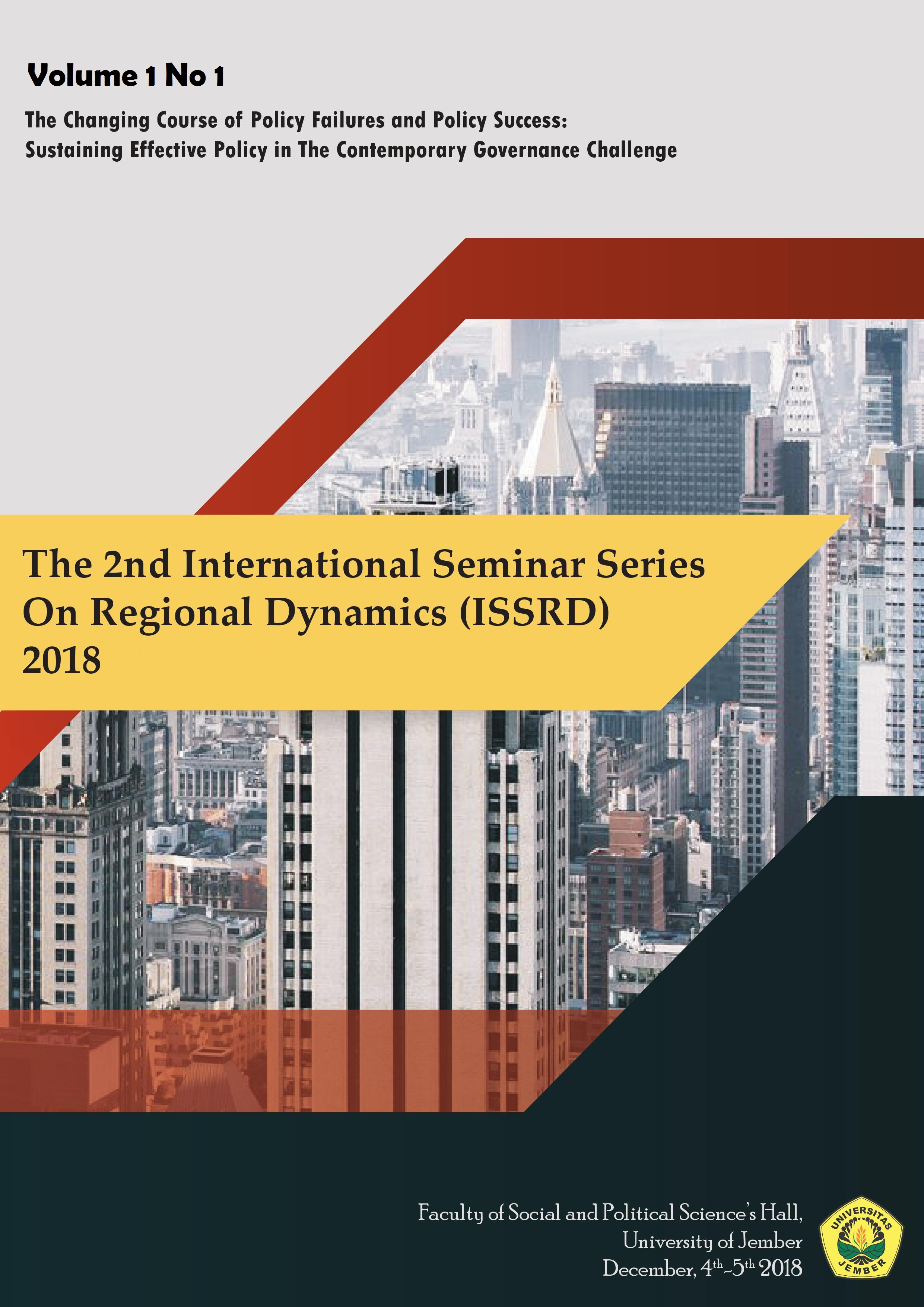THE ANALYSIS OF THE VILLAGE LAW IMPLEMENTATION POLICY BY USING EDWARD III MODEL APPROACH IN GARUT
Abstract
The equitable, prosperous, and independent village development that have not realized is the main problem of this study. The existence of Law no 6 of 2014 on Villages on the one hand is a hope but on the other hand becomes a challenge that must be built in a collaborative synergy between stakeholders or the elements of society in order to achieve the vision and mission of community independence and prosperity.
In Karangpawitan Subdistrict there are several obstacles in implementing Law No. 6 of 2014 on Villages. The obstacles are the lack of human resource who understands the laws, the lack of conducive communication, and complicated and unclear bureaucratic structure and disposition of the main duties and functions of each village officials which make the impact on nontransparent and unaccountable public service.
The method research used was qualitative approach with case study. The data was collected by doing observation and deep interview with the informant. The data analysis technique was Edward III Model approach by analyzing the factors that influence the implementation of policies, such as: (1) Communication; (2) Resources; (3) Disposition; and (4) Bureaucratic Structure.
The result of this research showed that there were several factors that should be improved and noticed in Dimension of Communication. The factors were goals and objectives, understanding and socialization form in order to achieve the goals and objectives that have been made. Furthermore, the Dimensions of Resources related to the competence of the village officials is the main problem and financial resources. The dimension of disposition is the character and characteristics possessed by implementers, such as lack of commitment, honesty, and ways of accepting the others’ opinions. The last is the dimension of bureaucratic structure. It is the task, principal and function of the village officials which have not been optimal.
Keywords: Public Policy, Village Development, Public Welfare












